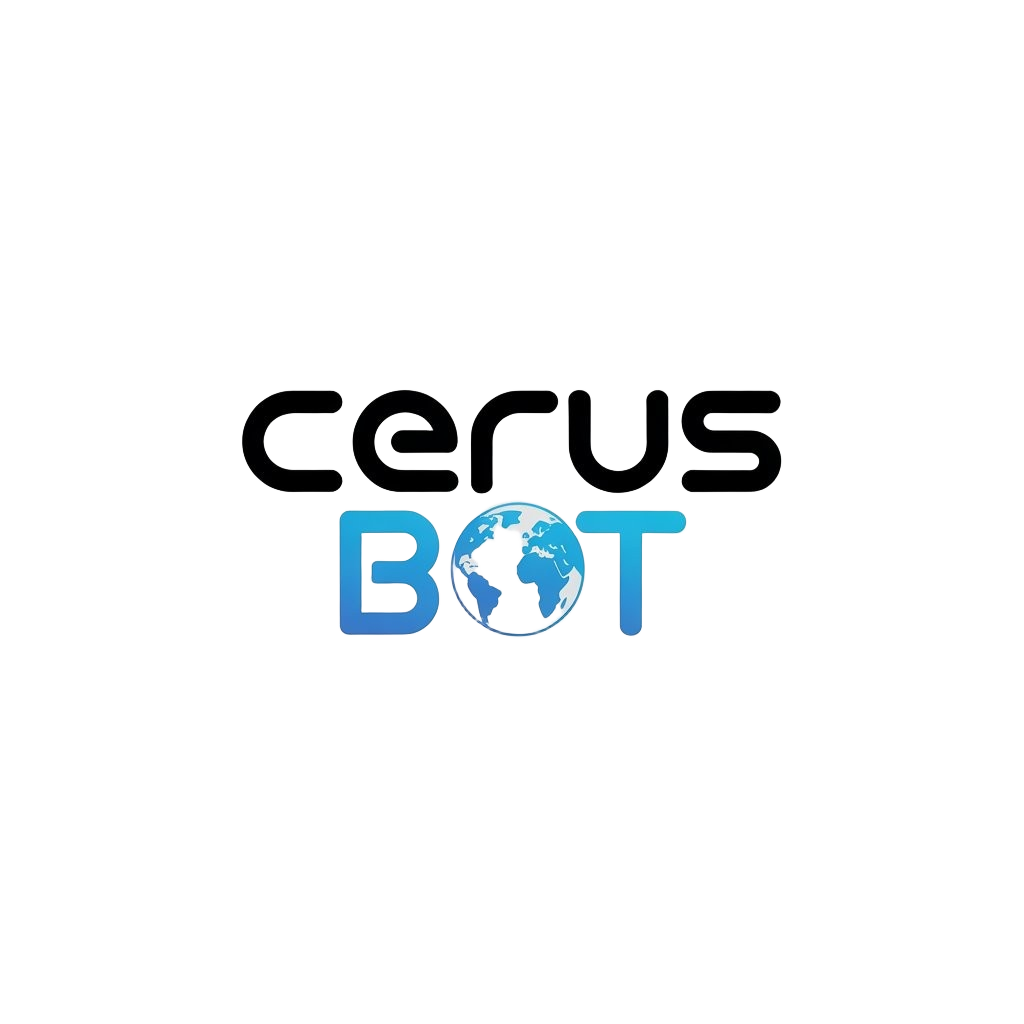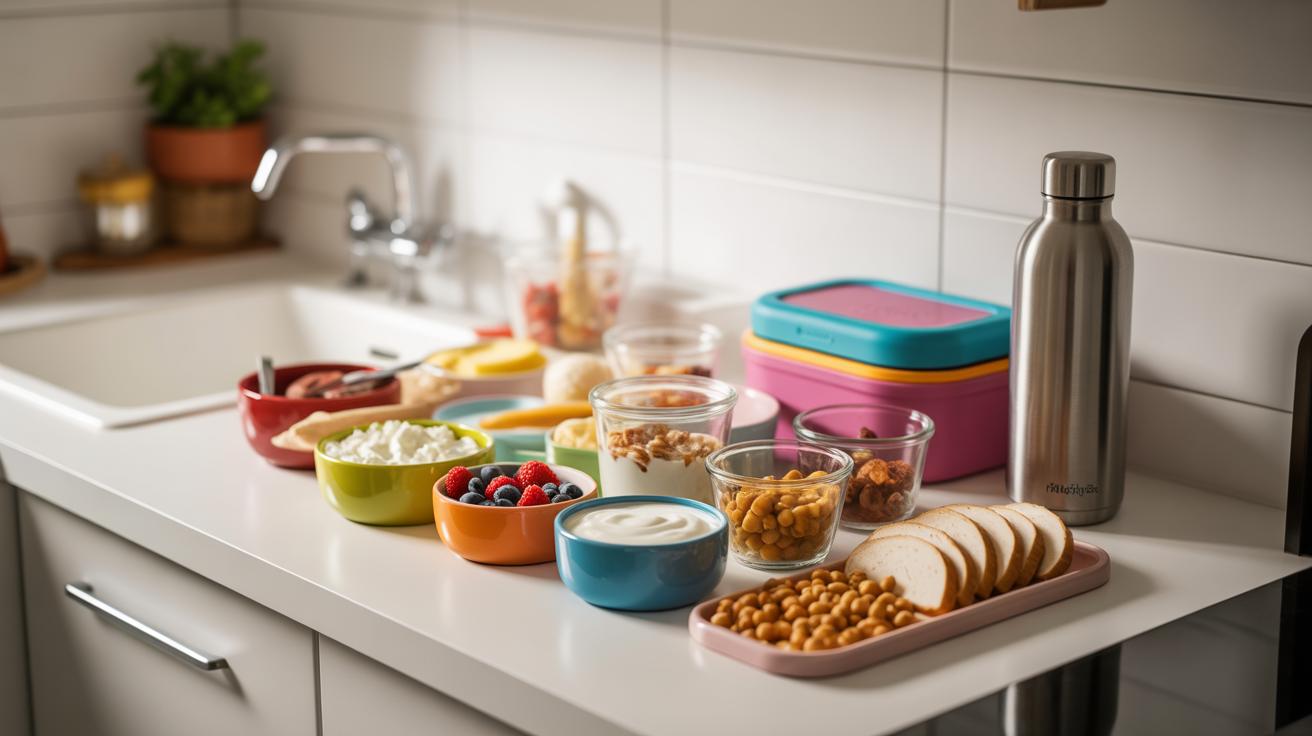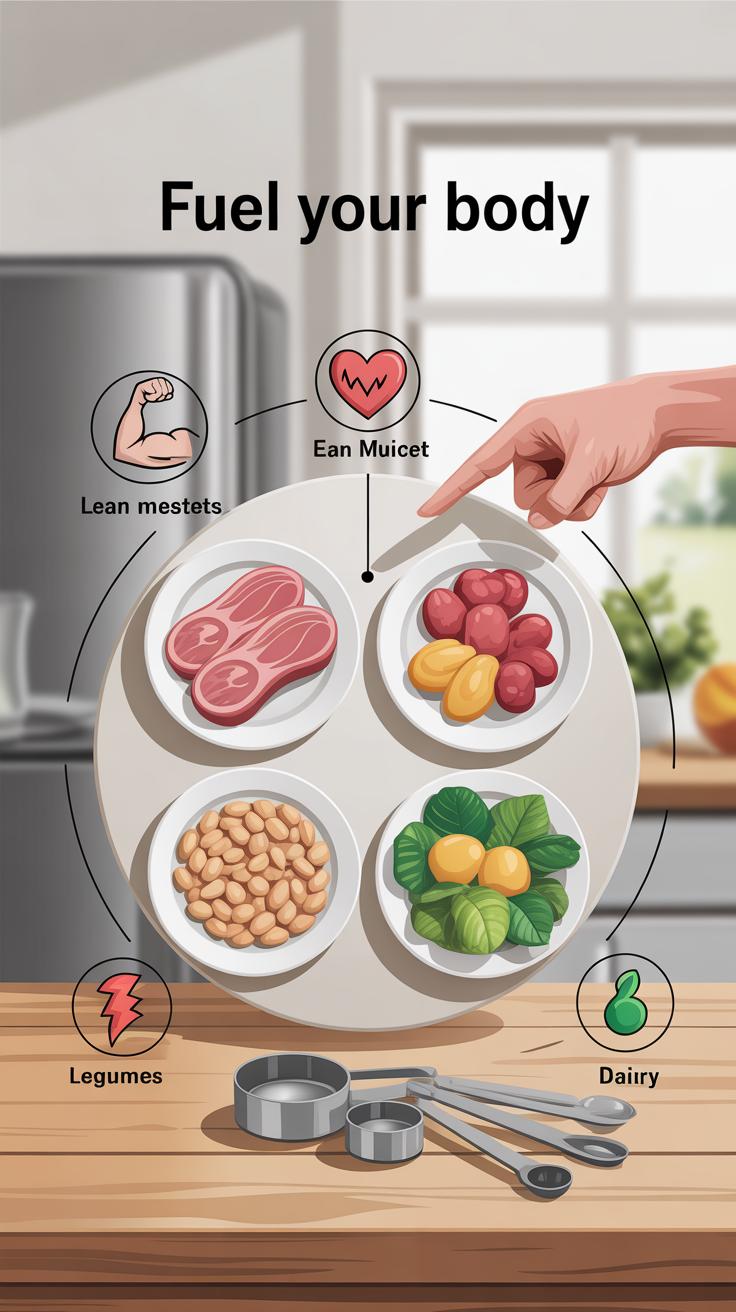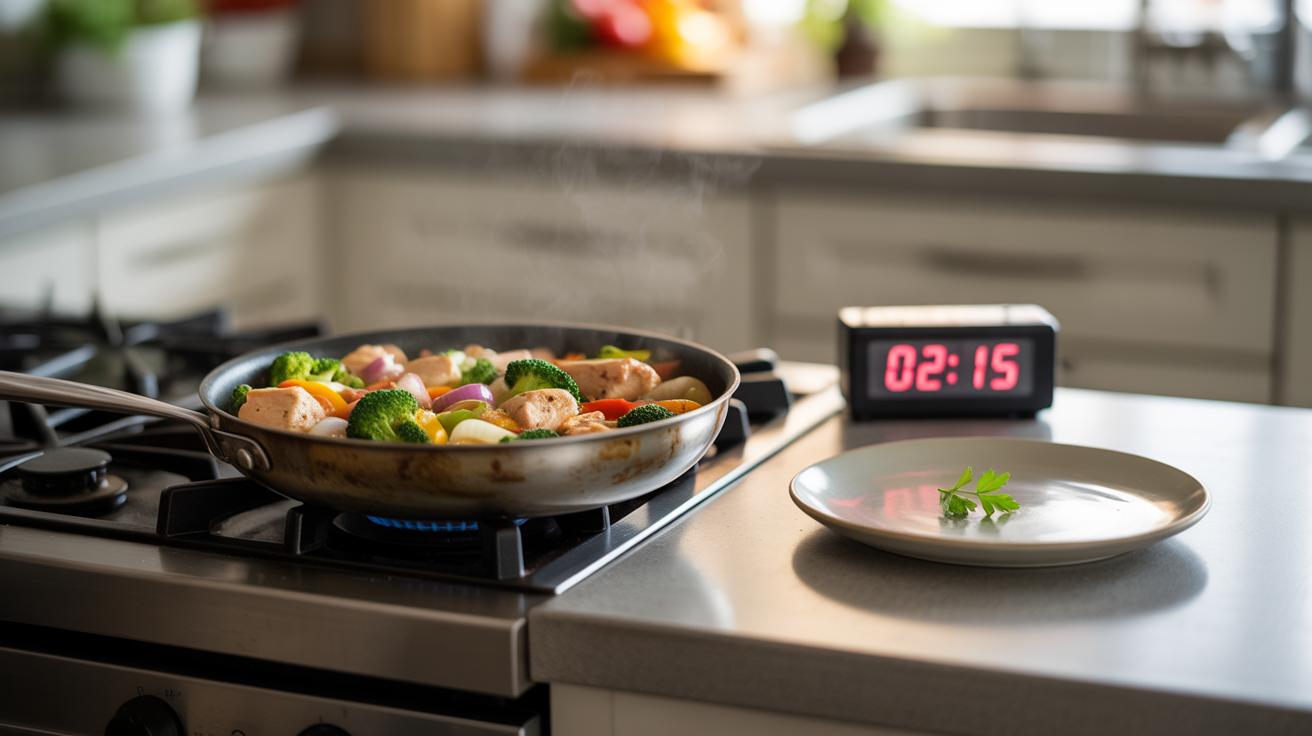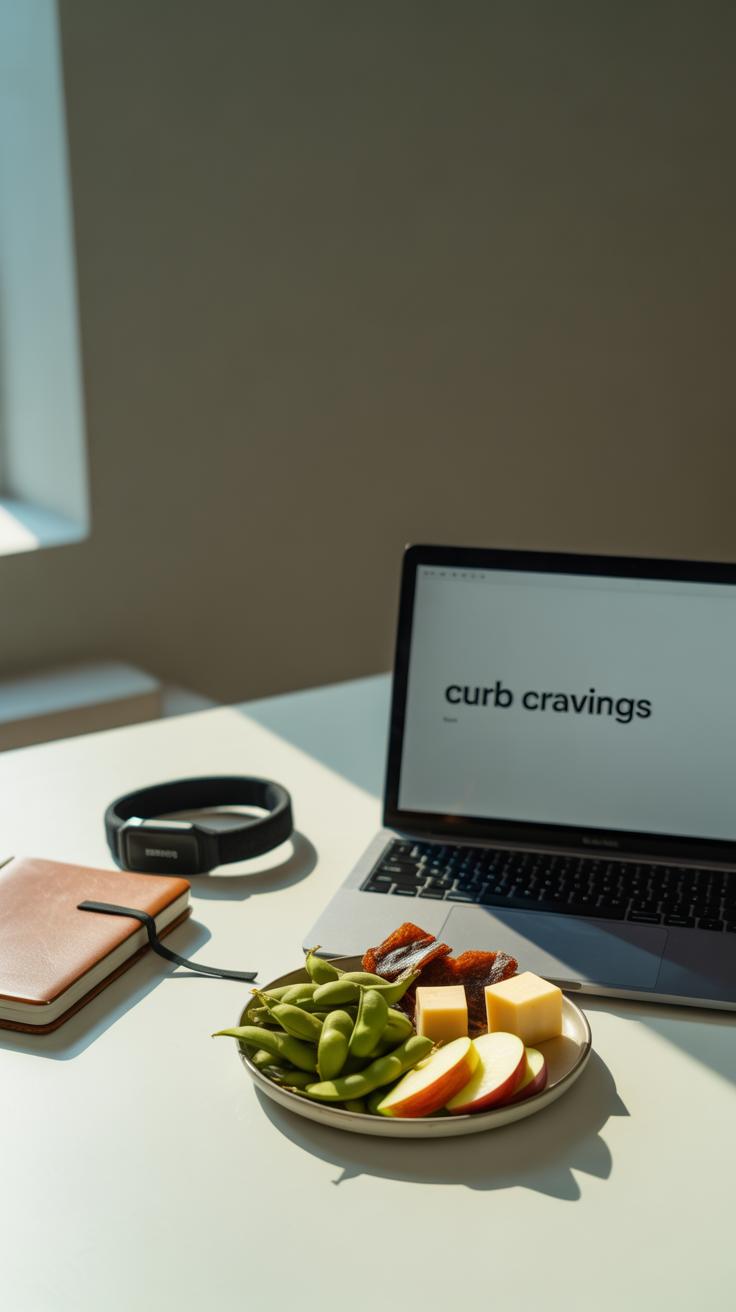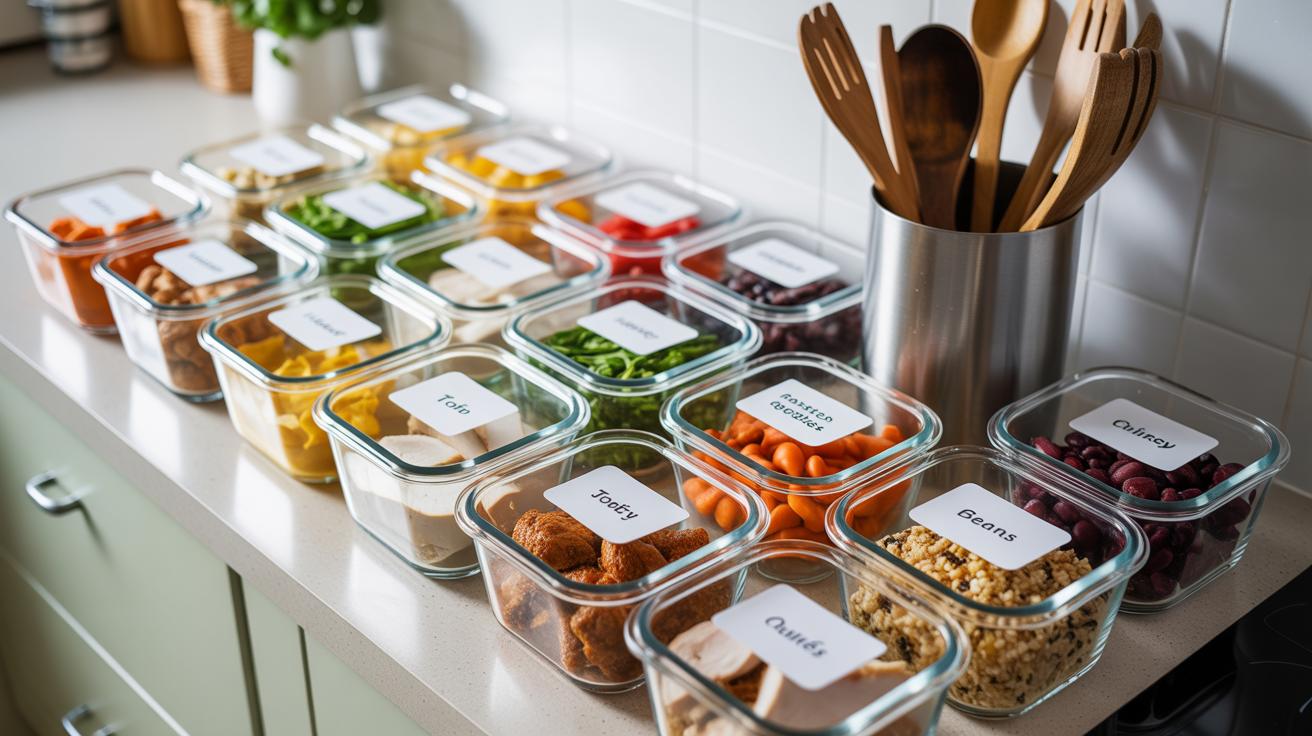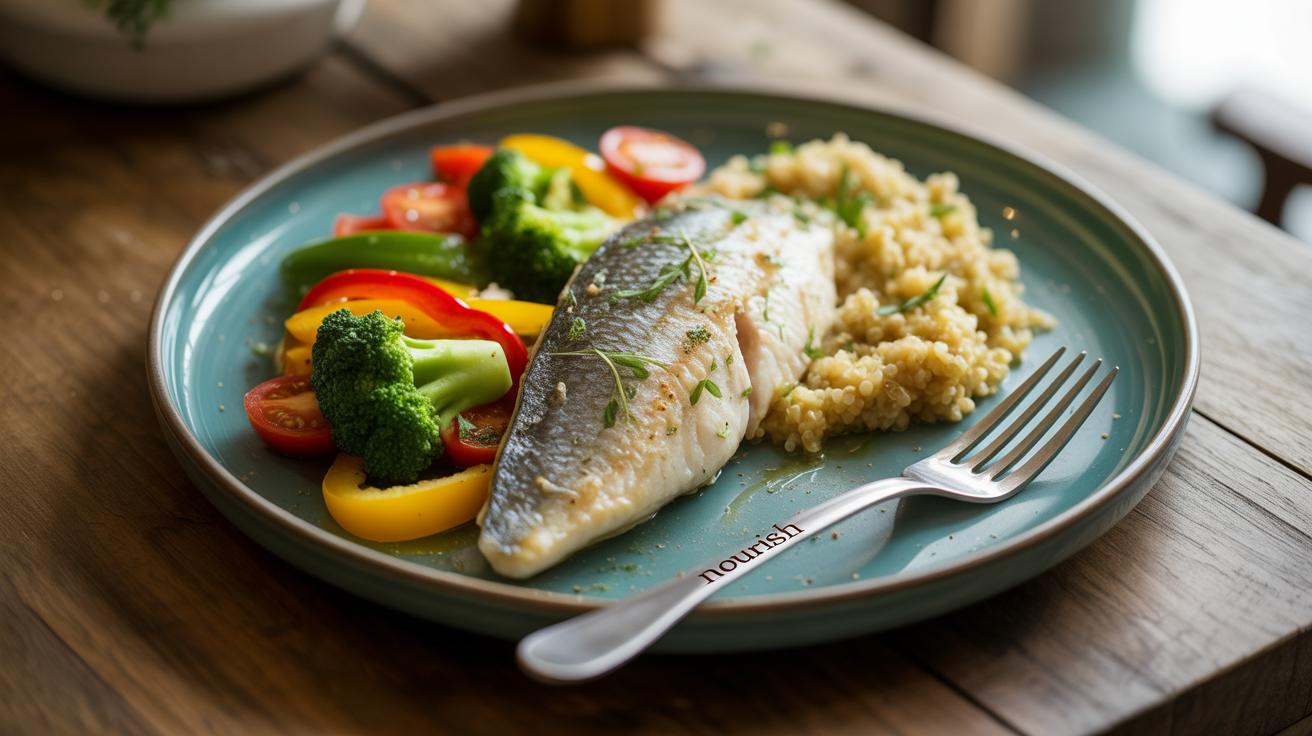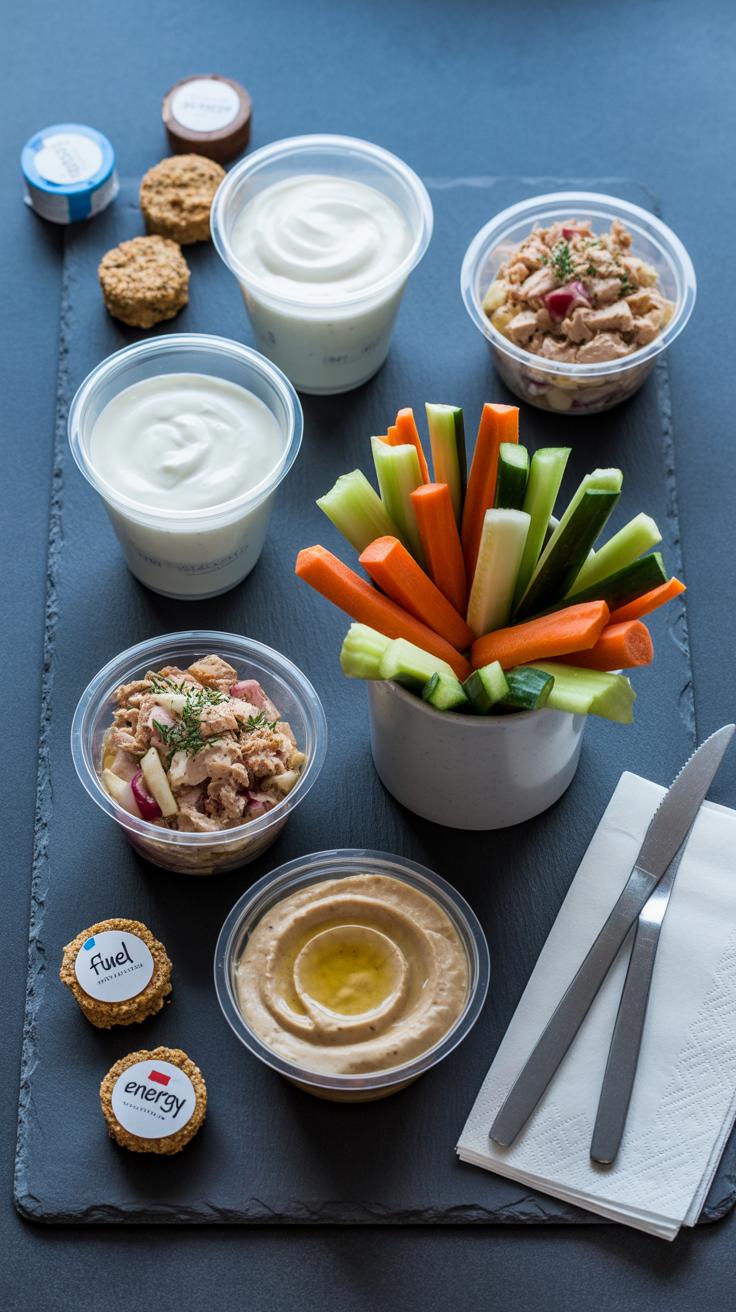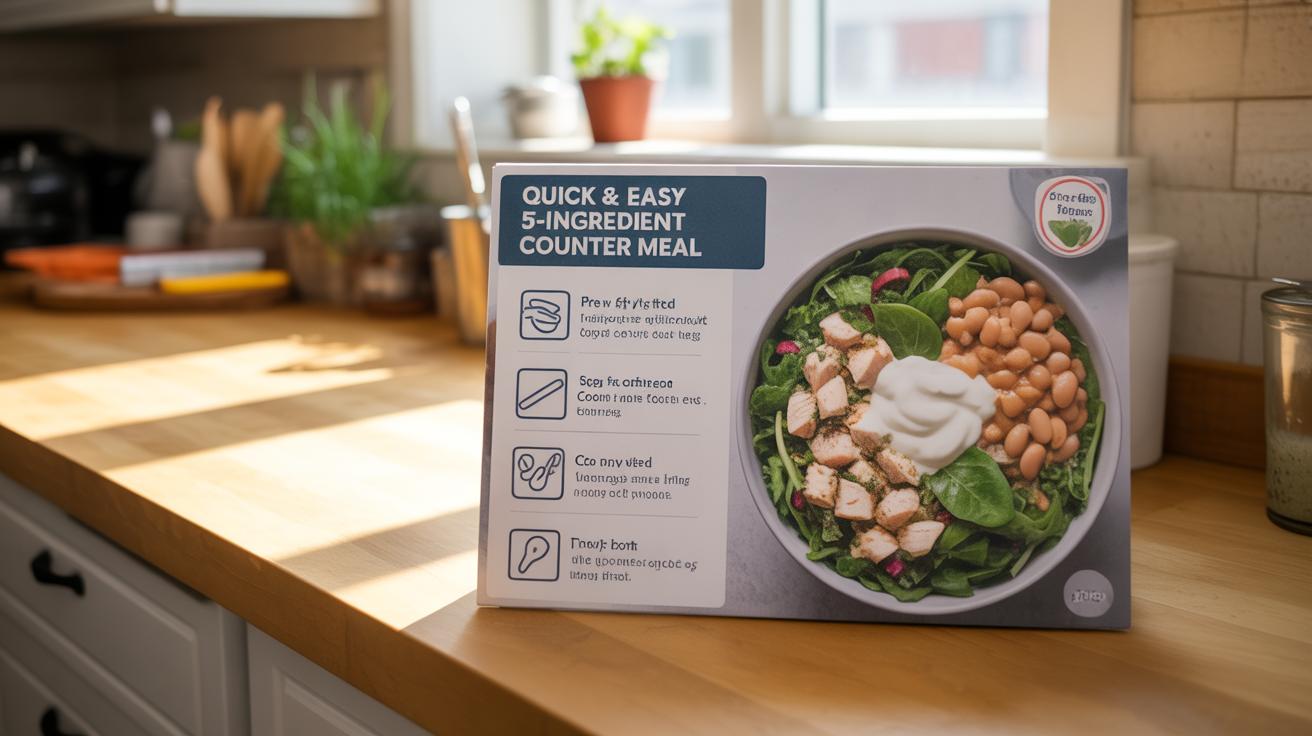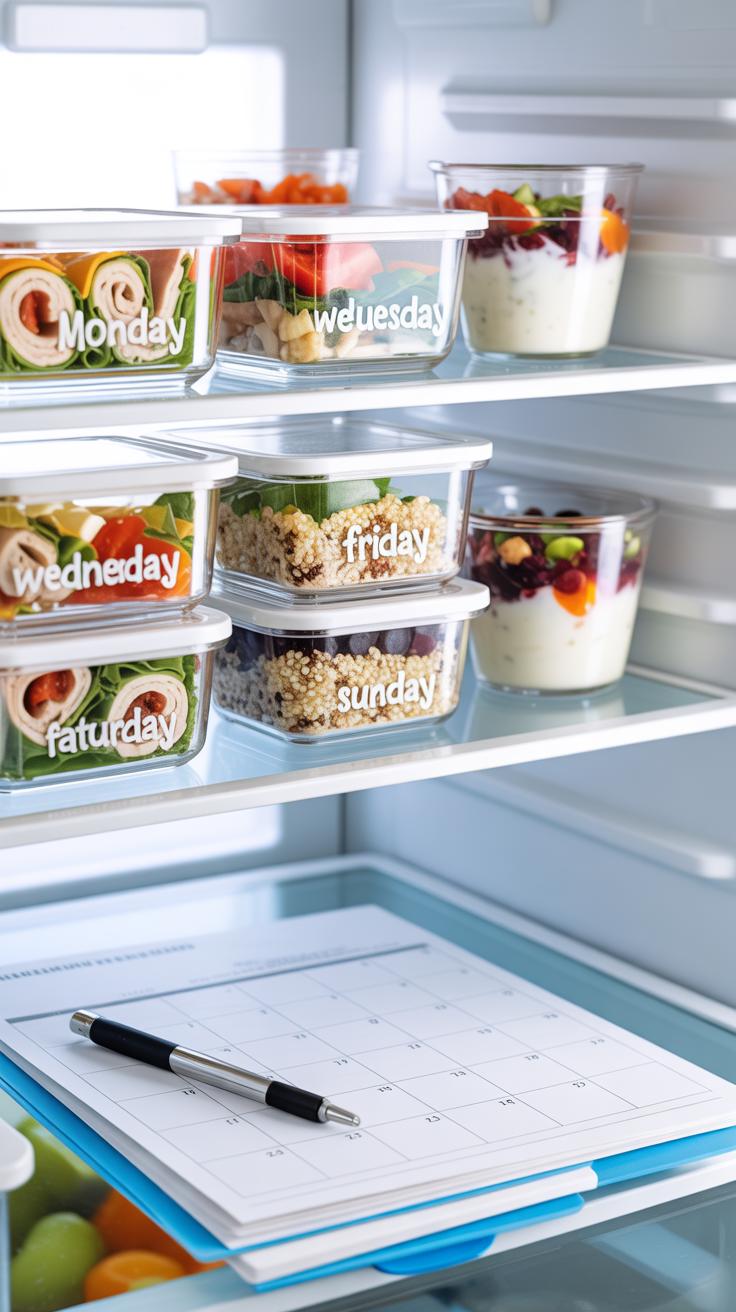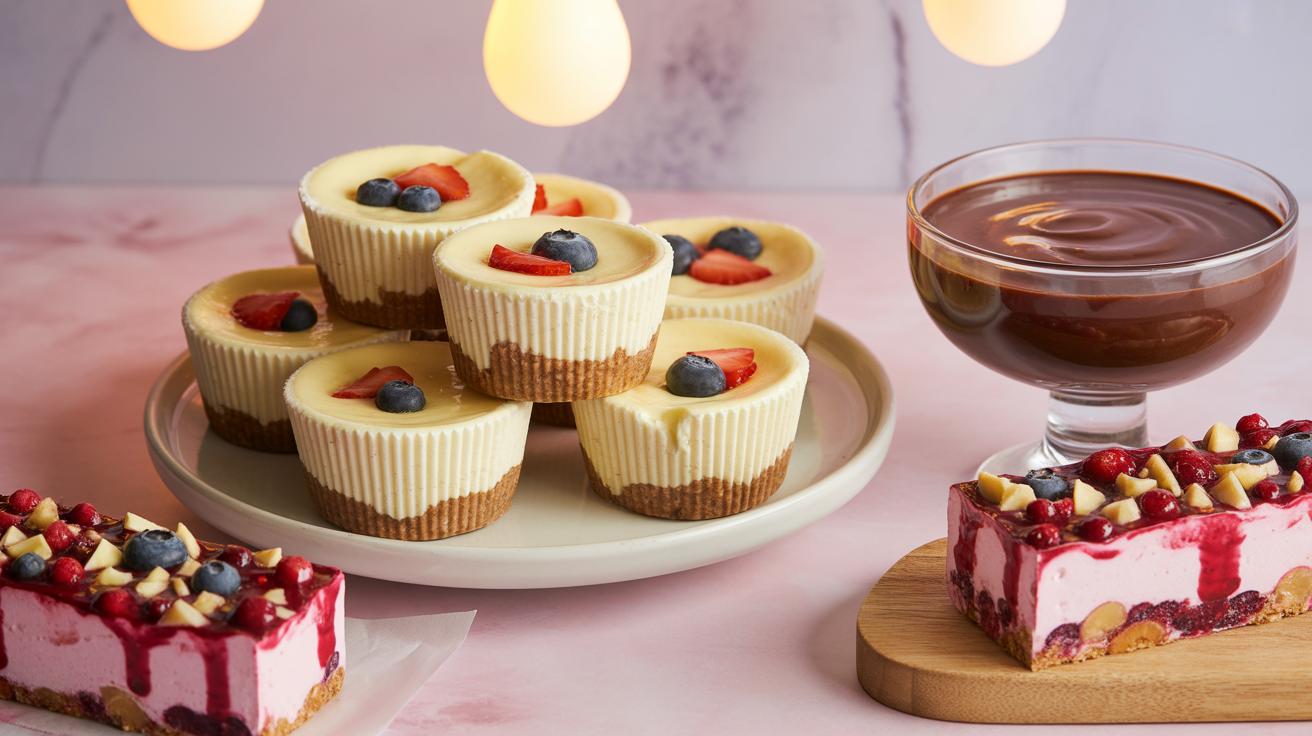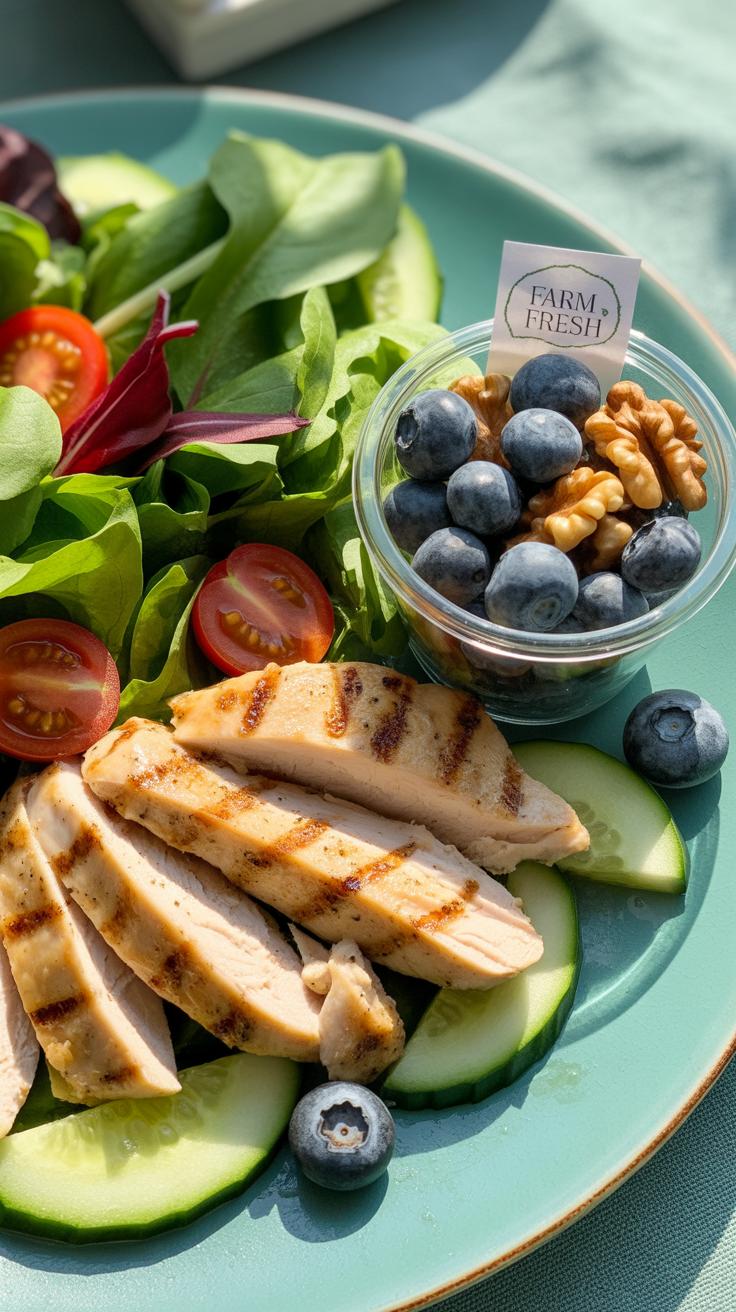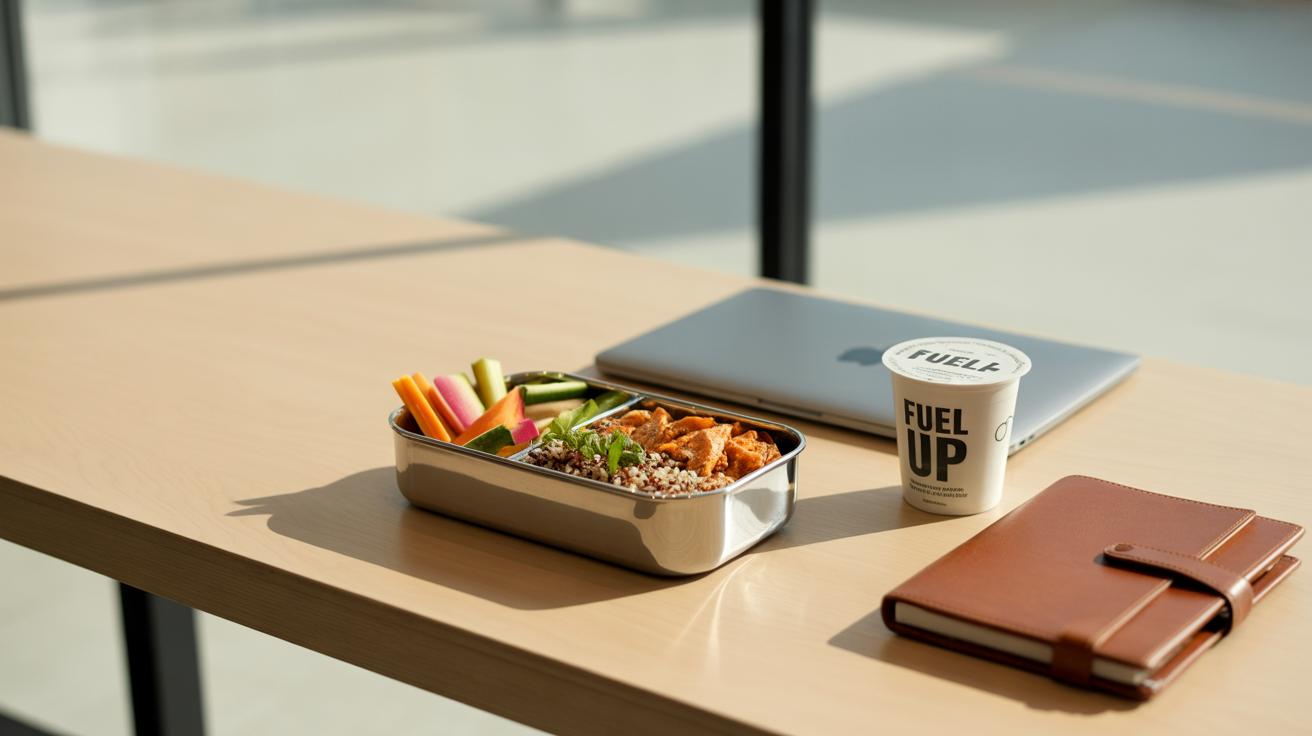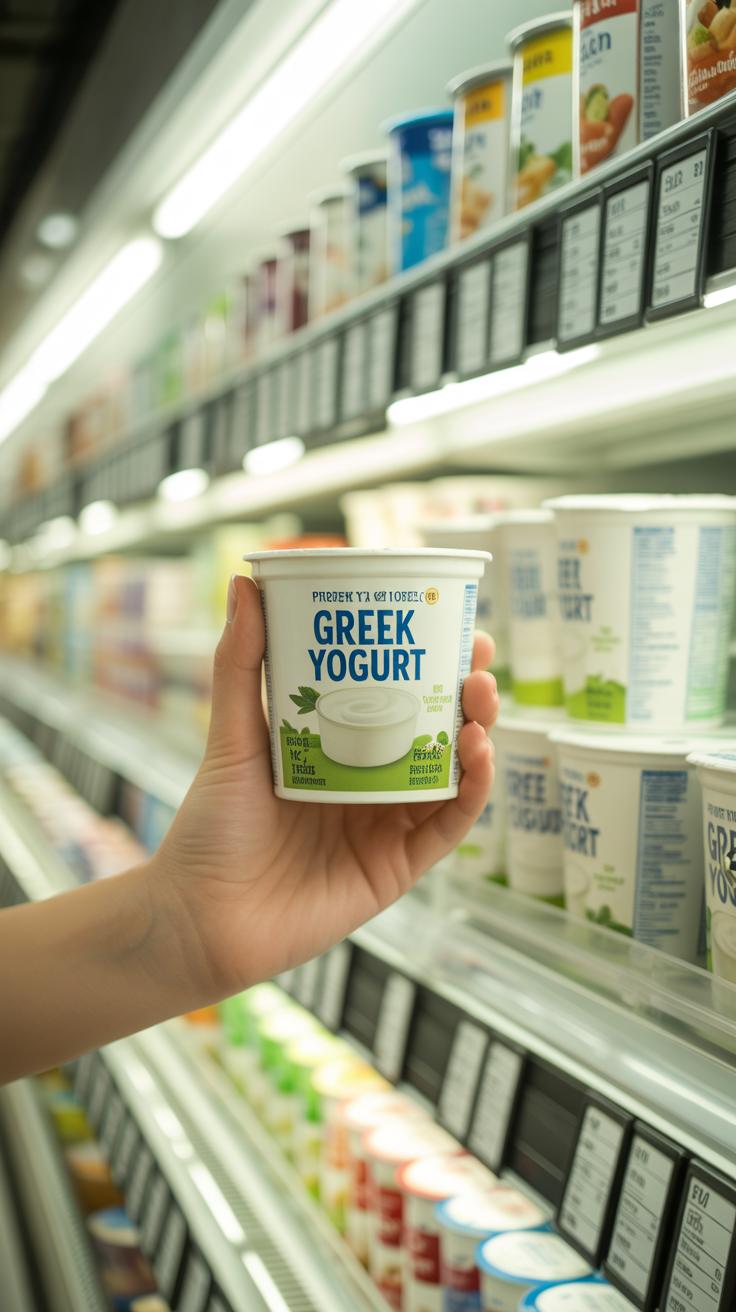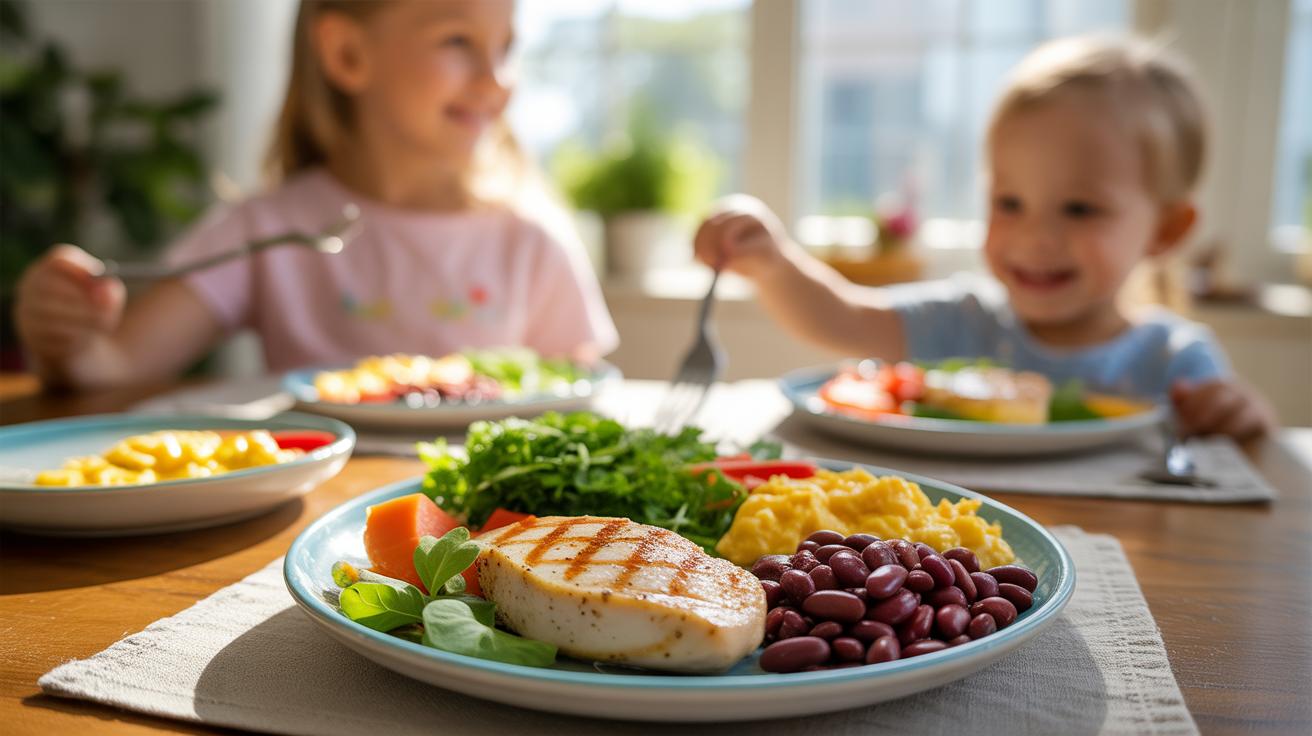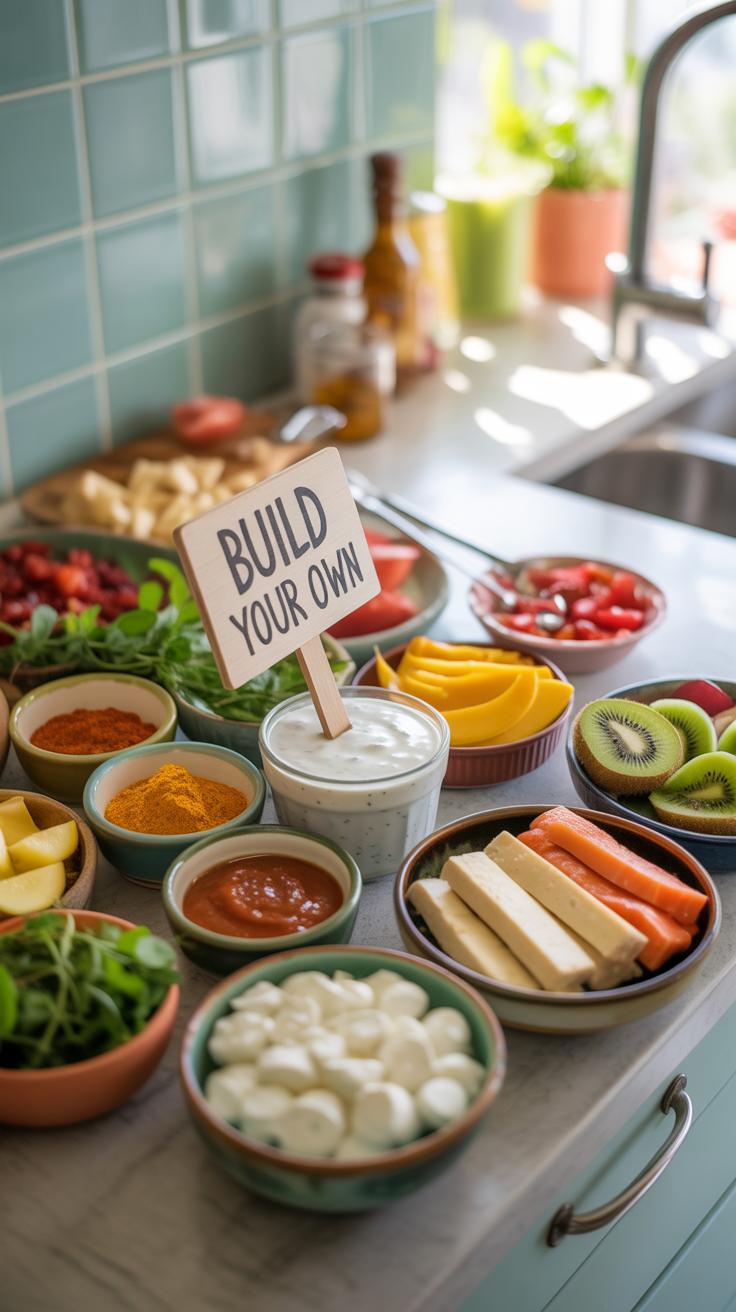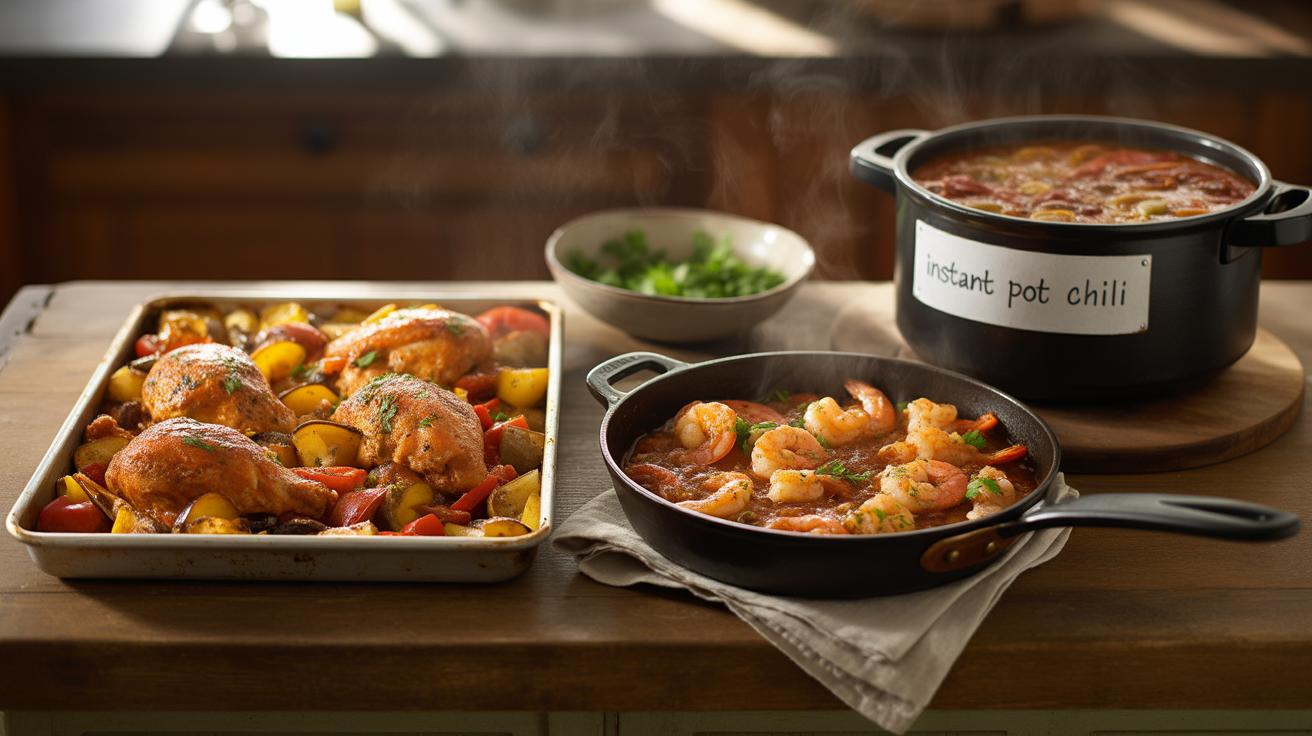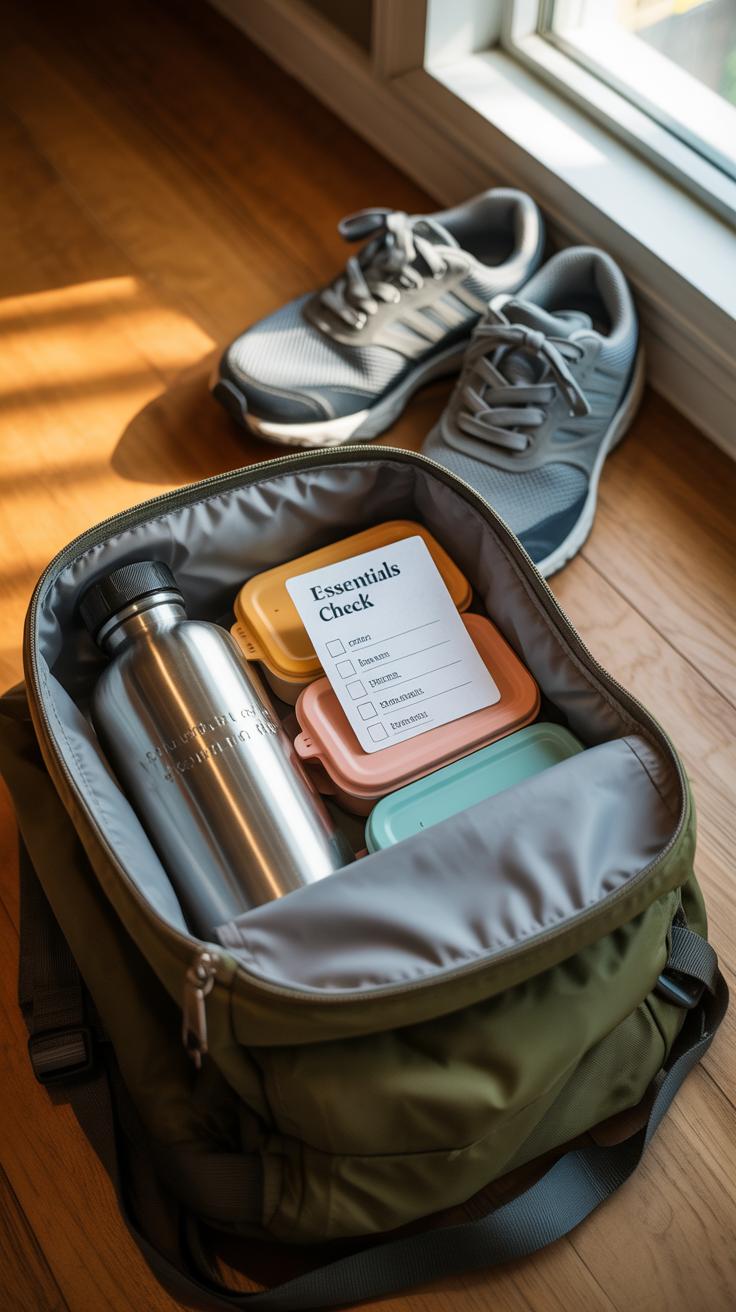Introduction
Finding time to eat healthy can be tough when you’re always on the go. High protein snacks offer a quick way to keep your energy up and your body strong throughout busy days. They fit easily into your schedule and help you avoid unhealthy choices when hunger strikes.
In this article, you will learn why protein is important for your health and how choosing the right snacks can make a big difference in feeling full and focused. We will explore simple, practical snack options packed with protein that you can prepare and enjoy anytime you need a boost.
Understanding Protein and Its Benefits
What Is Protein
Protein is something your body needs to grow and stay strong. It’s made up of tiny parts called amino acids. Think of amino acids like little building blocks. When you eat protein, your body breaks it down and uses these blocks to build many things, like muscles and skin.
There are different types of protein in food. For example, meat, eggs, and fish have lots of protein. But plants like beans, nuts, and seeds also have protein, just a bit different. None of these are better or worse; they just work in slightly different ways for your body.
How Protein Helps Your Body
Protein does a few things that really matter. Your muscles need it to fix themselves, especially after you play or exercise. Without enough protein, your muscles can feel tired or weak.
Protein can also give you energy. It’s not like the quick burst you get from sugar, but more like a steady push that lasts longer. When you eat protein, you usually feel full for more time. That means you won’t get hungry between meals as fast.
So, protein helps you stay strong, keeps your energy steady, and stops hunger from sneaking up too soon. It’s kind of like a helper that works behind the scenes, making sure your body runs smoothly on busy days—or any day, really.
Why Choose High Protein Snacks
Picking snacks that are high in protein instead of sugary or fatty options changes the way your day feels. You might think a sweet treat boosts your energy, but it often leads to a quick crash. Protein snacks don’t do that. They provide a slower, steadier supply of fuel your body can use, which makes a big difference when your day is packed.
When you’re rushing between tasks or meetings, it’s easy to reach for whatever’s handy—sometimes that’s candy or chips. But protein helps keep your energy from spiking and then dropping off. You stay more alert and focused, which means you get more done without feeling wiped out halfway through.
Stay Full Longer
If you’ve ever been really hungry between meals, you know how easy it is to grab whatever’s quick—even if it’s not the best choice. Protein can help cut those cravings down. It slows digestion, meaning you don’t feel that urgent hunger as fast. That feeling of fullness can last much longer compared to carbs or fats alone.
So, instead of nibbling on snacks all day, you likely eat less overall. This helps avoid the frustrating cycle of unhealthy snacking where you end up feeling bloated or sluggish. I’ve noticed personally that when I eat a protein-rich snack mid-morning, I don’t think about food again for hours.
Boost Energy and Focus
Protein supports steady energy because it influences how your body releases glucose—your main fuel source. This steady release keeps you awake in meetings or focused on work without that “energy slump.” You might have noticed a drop in concentration after sugary snacks; protein avoids that.
Plus, protein helps your brain work better. Your brain cells use amino acids from protein to produce chemicals that keep your mind sharp. So, if your snack has enough protein, you can keep your attention longer and handle stress better. It’s not a magic fix, but it definitely helps during those long busy days that never seem to end.
Easy High Protein Snack Options
When you’re in a rush but still want a solid protein hit, having go-to snacks ready is a lifesaver. Some things you can quickly prepare or grab without much fuss work surprisingly well. Think about nuts like almonds or pistachios—they’re portable, don’t spoil quickly, and pack a decent protein punch. Yogurt, especially Greek yogurt, is another favorite. It’s creamy, filling, and you can easily toss some berries or a drizzle of honey on top for flavor.
Cheese slices or string cheese offer simple, grab-and-go dairy protein without extra prep. And of course, boiled eggs—you can make a batch ahead and keep them in the fridge. They’re reliable, easy to eat, and pretty satisfying when you’re starving and need something quick.
Quick Store-Bought Snacks
You might not always have time to prep, so having a few store-bought options helps. Protein bars are popular but pick ones with fewer added sugars. Jerky, whether beef or turkey, sticks around without refrigeration and is quite rich in protein. Single-serve cottage cheese cups or ready-made hummus with pretzel packs also make decent options if you’re looking for variety. Nuts mixed with dried fruit—trail mixes—can hit the spot, though watch out for added sugars or salt.
Simple Homemade Snacks
Making something quick at home doesn’t have to be complicated. Try peanut butter on whole grain crackers or apple slices with a bit of cheese on the side. A smoothie with protein powder, a banana, and some almond milk can keep you fueled for hours. Another easy trick is mixing canned tuna with a little mustard or Greek yogurt and eating it with celery sticks. These ideas need few ingredients and usually take under five minutes. Maybe simple isn’t boring after all.
Planning Your Snacks Ahead
When days get hectic, reaching for fast food often feels like the easiest option. But prepping snacks ahead can really change that. If you have protein-packed bites ready to grab, you’re less likely to settle for something less nutritious. It’s a small habit, but it makes a big difference when your time is limited.
Try carving out a bit of time—maybe Sunday afternoon or a weekday evening—to prepare snacks for the coming days. Making batches means you don’t have to scramble later. You might find that having pre-portioned snacks actually saves mental energy. Instead of wondering what to eat, you just reach in the fridge or your bag.
Think about storing snacks in clear containers or resealable bags so you can see what’s there at a glance. This avoids the “what’s in here?” hesitation. Small containers work great for nuts, cheese cubes, or boiled eggs. If you want, pack a few snack sizes in one larger container to carry along.
For on-the-go situations, pick containers that fit comfortably in your bag without risking spills. I like small bento boxes or insulated snack bags for keeping things fresh. Sometimes, I use glass jars, but that’s a bit heavy if you’re walking a lot. The key is convenience—if it’s a hassle, you’re less likely to keep it up.
Have you noticed how just being prepared can make you feel a bit more in control during a crazy day? It’s a simple way to keep your energy up without the fast-food rampage. So, prepping isn’t just about the snacks themselves but about easing your whole day.
Balancing Snacks with Your Meals
Snacks and meals serve different roles, yet they work best when they complement each other. Meals are usually larger, more balanced affairs with carbs, fats, and proteins aiming to satisfy hunger and provide energy for extended periods. Snacks, on the other hand, often fill gaps—they’re quick boosts, helping to prevent dips in energy or cravings that might lead to overeating later.
Including protein in both meals and snacks supports your body in steady ways. Protein isn’t just for muscle repair; it keeps you feeling fuller longer and stabilizes blood sugar. Think of your day’s protein intake as something to spread out rather than gulp down once or twice. So, while your lunch might center on chicken or beans, a handful of nuts or a small yogurt mid-morning offers a timely, nutritious protein lift.
What’s a good balance? You might aim for about 20-30 grams of protein at a meal, but a snack with 10-15 grams can still make an impact. This spreading helps avoid those mid-afternoon slumps or sudden hunger pangs.
Sometimes I find myself wondering if I’m eating the right balance through the day—too much protein at one sitting can be as unhelpful as none at all. So mixing it up with smaller protein snacks between meals feels more natural, even if it’s a bit less precise than calorie counting.
In practice, try to view snacks not as just fillers but as part of your total nutritional picture—protein-packed snacks support meals rather than replace them. This way, your energy and nutrition stay steady, and you’re less tempted by less healthy choices when hunger hits.
Reading Labels to Choose the Best Snacks
When you grab a snack from the shelf, the nutrition label can feel a bit like a secret code. But it’s not that tricky once you know where to look, especially for protein. Usually, the protein amount is right near the top of the label, listed in grams per serving. If a snack has around 7 grams or more of protein, it’s generally a good pick. Less than that? Well, you might want to keep looking, unless the portion size is very small or it complements other foods you’re having.
Now, just focusing on protein isn’t enough—you also want to check what else is in there. Sugars and fats can sneak in, sometimes in surprising amounts. Scanning that “Total Sugars” line can reveal if a snack is overloaded with sweeteners. If it’s more than a few grams per serving, that could counteract the benefits of the protein. Fat content matters, too, but not just how much—what kind of fats count. Stick to snacks with lower saturated fats and fewer artificial additives.
Some packages twist things by highlighting “low fat” but then load up on sugars, or vice versa. So, you have to balance these numbers in your head a bit. I find it helps to ask myself: does the snack provide enough protein to justify its sugars and fats? If not, I usually put it back. Reading labels is part number game, part gut feeling. And yeah, sometimes it feels like a bit of a gamble, but that’s just how learning to pick snacks goes.
Customizing Snacks for Your Taste and Needs
Finding protein snacks that fit your personal taste and dietary needs might take some experimenting. You might realize you enjoy crunchy roasted chickpeas more than you thought or prefer a smooth almond butter over a powdery protein shake. The point is, there’s no one-size-fits-all snack. If you’re vegetarian, try edamame or Greek yogurt. Vegans might lean towards hummus with veggies or mixed nuts. For those avoiding dairy, seeds like pumpkin or sunflower offer a solid protein hit without the milk.
Making protein snacks flavorful keeps them from becoming boring. A sprinkle of cinnamon on cottage cheese or a dash of smoked paprika on roasted tofu can make a big difference. Sometimes a bit of honey or a squeeze of lemon adds just enough zing to wake up your taste buds. Don’t hesitate to mix sweet and savory elements—it’s worth discovering what clicks with your palate. What snacks have you tried that surprised you?
Staying Consistent With Healthy Snacking
Making protein snacks a regular part of your day doesn’t happen by accident. It takes a little planning, but mostly small habits that nudge you in the right direction. Something as simple as keeping your favorite nuts or a protein bar right where you see them, like on your desk or kitchen counter, can make a big difference. When snacks are out of sight, it’s way too easy to forget or just skip them altogether.
Setting reminders on your phone can help, but don’t rely on them alone. I’ve found that if I’m rushing, even reminders get ignored. The trick may be to combine both: a quick alert and an easy-to-grab snack in plain view. Over time, reaching for protein becomes almost second nature—you won’t have to think much about it.
Watch out for common traps like eating too much at once or picking snacks that don’t do the job protein-wise. It’s tempting to snack mindlessly, especially when busy or stressed. But having measured portions ready, like a small container of edamame or single-serve Greek yogurt, helps keep you on track without that sluggish feeling afterward.
Ask yourself occasionally: am I really hungry or just bored? This can stop overeating before it starts. Sticking with snacks that actually fuel you—rather than just fill you up quickly—makes staying consistent easier, even on your busiest days.
Conclusions
High protein snacks are a valuable tool for busy people looking to eat healthier without spending too much time preparing food. They provide lasting energy and support muscle health, keeping you active and alert all day. By incorporating a variety of easy, tasty protein snacks into your routine, you can better manage hunger and maintain balanced nutrition.
You have many choices, from nuts and seeds to yogurt and hard-boiled eggs. Experiment with what fits your taste and schedule. Remember, keeping protein close at hand helps you stay on track with your health goals, even when life gets hectic.
